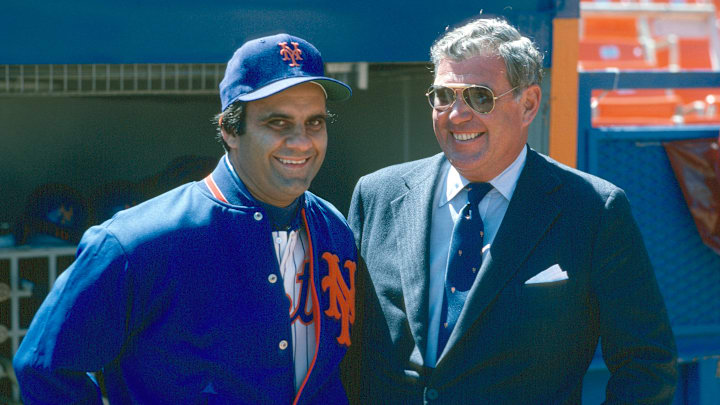8. Luis Rojas, 2020
We thought Westrum's path to becoming a major league manager was odd. Try getting promoted from Quality Controls Coach because the man expected to lead the team, Beltran, was fired weeks after being hired because of his involvement in the 2017 Houston Astros cheating scandal. Then, have your major league debut put on hold due to a worldwide pandemic just weeks before opening day. Then, have the culture of baseball completely change with 7-inning doubleheaders, limited face-to-face contact, speaking to the press via zoom, and the universal D.H. for a 60-game season. All of this and you haven't managed a game yet. Yes, this all happened to Luis Rojas in 2020.
The expectation going into the 2020 pandemic-shortened season was to be one of the 16 playoff teams under the new rule changes. Having a 60-game season basically meant the Mets were immediately inserted into a playoff chase with the other 4 teams in the N.L. East. However, nothing would go right for Rojas and much of it was out of his control. Cespedes and Stroman would opt-out of their contracts for the season. The Mets had a starting rotation and bullpen in shambles behind deGrom and Diaz. The team would finish 26-34 in what was the most difficult season to evaluate for a rookie Mets manager.
The common theme amongst all these rookie managers is that the Mets have not made the playoffs in year one of their term. Other than 1984 under Johnson, the Mets have either been mediocre or very bad in these scenarios. My prediction is Mendoza will be closer to Randolph's rookie season- a solid record around .500 but the team misses the playoffs. With expectations being lowered in 2024, it gives Mendoza a year to get settled and build from his new experience.
